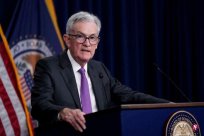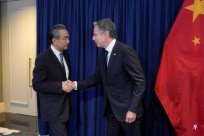
(Washington Reuters) International Monetary Fund (IMF) estimates that Russia withdraws from Agricultural Products Foreign Products with Black Sea Port in Ukraine, which may push global grain prices by 10%to 15%.
IMF Chief Economist Pierre-Olivier Gourinchas stated on Tuesday (July 25) that the agreement is sufficient to ensure that the grain supply from Ukraine is sufficient, thereby alleviating the pressure of food prices. "It is very helpful."As the agreement stops, the price of food is likely to face rising pressure.
He said: "We are still evaluating the landing point, but the price of grain rises by 10%to 15%is reasonable estimation."
IMF said last week that the Black Sea Running Agreement was suspended and implemented with the largest impact on Ukrainian grains, including North Africa, the Middle East and South Asia.
On July 22 last year, Russia and Ukraine signed the agreement under the mediation of the United Nations and Turkey.After three extensions, the agreement expired on the 17th of this month. Russia refused to extend the agreement on the grounds that Russia did not obtain obey.
During the execution of the agreement, Ukraine exported nearly 33 million metric tons of grains through the Black Sea, which played a great role in improving global food security.
The European Union said on Tuesday that it is ready to pass through the so -called "solidarity lanes", that is, the railway and land routes that cross the EU member states bordering Ukraine, and export almost all Ukraine agricultural products.During the effect of the Black Sea Grain Agreement, about 60 % of Ukraine agricultural products were exported through these channels, and the remaining 40 % were exported through the Black Sea.
IMF forecast on Tuesday, the global overall inflation rate this year will reduce from 8.7%last year to 6.8%, and further decreased to 5.2%in 2024; the core inflation rate is expected to fall to 6%this year, and from 2024 to 4.7%.
Gulin Chas said that central banks of various countries may not be able to achieve the inflation rate target until the end of 2024 or early 2025, thereby ending the current currency tightening cycle.




